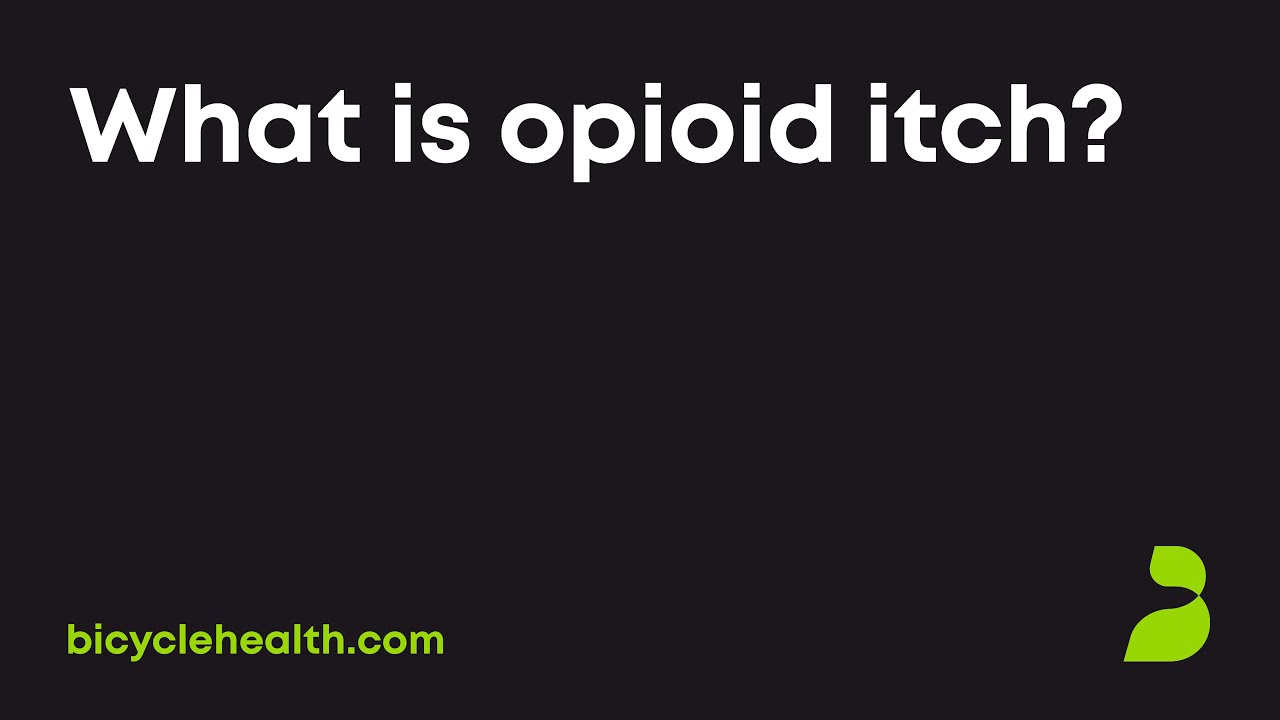
Doctors don’t know why opioids make their patients itch; however, researchers have identified several factors that could explain why the drugs cause itching.[1]

If you react poorly to one type of opioid, switching to a different version may help. Medications and at-home care could help too.
Opioids are prescription painkillers. They’re similar to illicit opiates (like heroin), but they’re made in controlled environments by chemists. Opioids work by latching to opioid receptors in the brain. Latching triggers euphoria, making pain signals easier to ignore.
Between 2% and 10% of people who use opioids develop itching. The risk is higher when people get their drugs via injection rather than swallowing pills.[2]
Itching is uncomfortable, but it’s rarely life-threatening. Most people with opioid-induced itching develop red, puffy, itchy skin and no other symptoms. With the proper treatment, they can be much more comfortable.
Researchers believe opioids cause itching by activating the immune system, altering serotonin levels or triggering key brain centers associated with pain.[1] If your doses make you itch, you’re not necessarily allergic to them.
Opioids could make you itch due to the following issues:
Less than 2% of patients have a true allergy to opioids.[6] Those that do have severe side effects such as the following:
If your drugs spark mild redness and itching, you’re not experiencing an allergic reaction. Instead, your drug is working on well-known pathways that could lead to itching.
If you do experience severe allergic reactions to your Suboxone, contact your doctor immediately.
Most opioids can cause itching, including morphine, fentanyl, codeine, oxycodone (OxyContin) and hydrocodone (Vicodin). All opioids latch to receptors in the brain and body. The latching and resultant chemical changes can make you itch.
Researchers know that some medications cause more severe itching than others. Stronger drugs (like fentanyl) tend to cause larger itch reactions than their weaker counterparts (like morphine).
Source[5]
If you are struggling to discontinue opioid use, medications like Suboxone can help. Suboxone is a partial opioid itself. Like other opioids, it can also sometimes cause itching, but the itching may be less severe than someone taking full opioid agonists.
If your opioids make you itch, talk with your doctor. Together, you can create a plan to stop the discomfort.
Over-the-counter antihistamines can reduce itching responses caused by opioids, but they can cause sedation.[5] Prescription solutions, including those with promethazine, can be sedating too.[5] Your doctor can help you decide how to treat your itch. Never take antihistamines without checking first.
Antihistamines can be sedating, and opioids cause the same problem. Putting them together can lead to severe sedation. Never combine them without asking your doctor first.
If your itching is severe, your doctor may try a different drug in the same class. A simple swap like this could be enough to make the discomfort fade.
Always contact your doctor if your itching is severe, interferes with your breathing or impacts your opioid treatment.

If you’re using MAT therapies like buprenorphine and itching begins, your doctor has several options to help you, such as these:
Itching can interfere with your sleep, make concentration difficult and just make life harder. It’s difficult to focus on your recovery when you’re dealing with an itch.
But never quit taking your medications without talking to your doctor first. Your recovery is important, and your doctor is a critical part of your team. Explain your itching and ask for help before you make any decisions.
We’ve compiled some of the most frequently asked questions about opioid-induced itching.
How long does opioid-induced itch last? Some people experience an itch the entire time they take opioids. Others notice their symptoms fade within a week or two.
How can I tell the difference between an opioid allergy and a side effect? Severity is the main difference between allergies and side effects. A true opioid allergy causes severe symptoms like skin lesions, swollen eyes, low blood pressure and difficulty breathing. Mild itching is a side effect, not a symptom of an opioid allergy.
What are other common side effects of opioid use? Opioids can cause side effects like constipation, sedation and nausea. Continued use can lead to dependence (needing to use the substance consistently to feel normal) or opioid use disorder (an inability to quit when you want to).

Peter Manza, PhD received his BA in Psychology and Biology from the University of Rochester and his PhD in Integrative Neuroscience at Stony Brook University. He is currently working as a research scientist in Washington, DC. His research focuses on the role of the brain dopamine system in substance use disorders and in aging. He also studies brain function in obesity and eating disorders.
Our science-backed approach boasts 95% of patients reporting no withdrawal symptoms at 7 days. We can help you achieve easier days and a happier future.
Get Startedor book an enrollment call